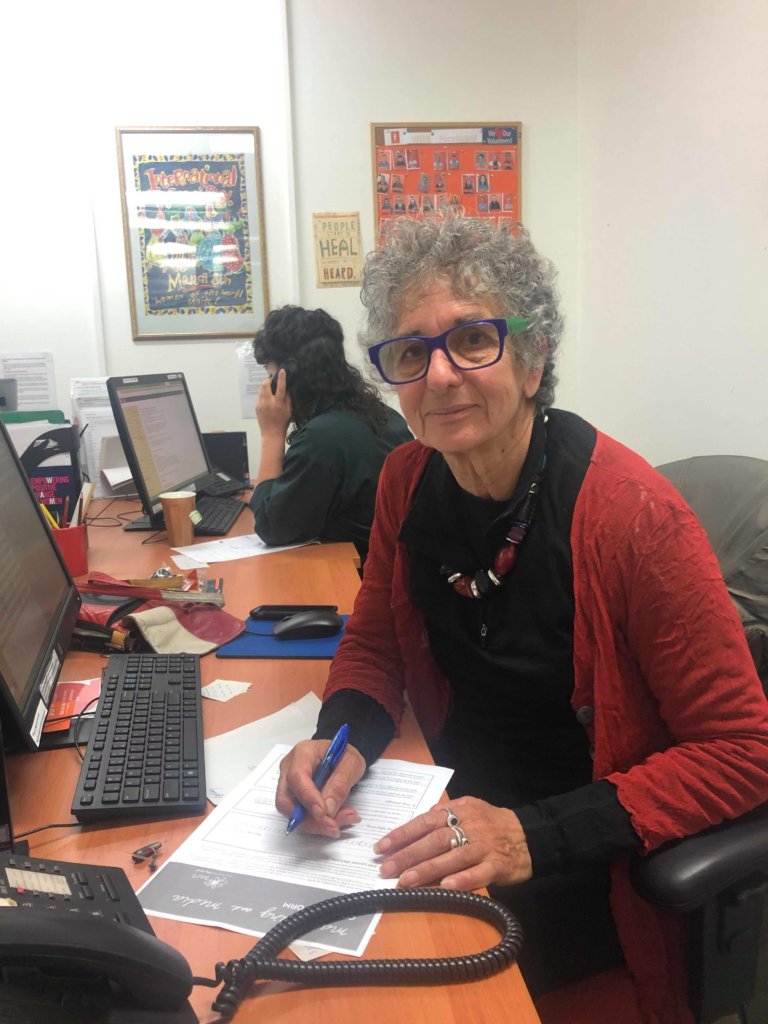Sustainable and Transformative Employment Pathways (STEP)
In 2019, WIRE established an innovative project designed to assist family ...
In 2008, I applied to become a volunteer in the phone room. I completed the WIRE Phone Room training in 2009 and started working phone shifts soon after that. 10 years later and I’m still here!
Apart from caring for my grandchildren, I’m active in U3A – which stands for The University of the Third Age. It’s a not-for-profit organisation that is led by mainly retired members of the community and it’s a place where we can teach, lead activities and engage socially with each other.
I conduct training as well as participating in different courses. It’s all on a voluntary basis.
It keeps people alive – it’s amazing talent that people bring. Everyone has such as wealth of knowledge and it’s great to bring this together and share around. At the moment, I am coordinating a memoir training group where we all write together.

I listen to people who ring in with something to share. I let the story to unfold and with the help of my colleagues I identify appropriate support services.
It’s really a matter of listening and getting the person to talk out their story rather than channeling them in a certain direction. We let them lead the conversation.
Being heard is empowering for the caller. Our intention is to listen intently and to acknowledge their position and strengthen their strengths.
In the phone room we work as a team. We discuss what referrals will be most helpful and we hone our skills by seeing other volunteers in action.
Our phone line gives voice to people who may never have felt listened to before then. It gives people credibility, acceptance and a feeling of being supported and united. Women, nonbinary and gender-diverse people are all too often silenced by society.
Just earlier we had a call from an older woman who described the way her partner has mistreated her for the last 50 years, and she wasn’t sure if his behaviour was normal. On the phone, I helped her question and interrogate that behaviour. Were his actions fair? Never. Is it ever ok? Never.
Obviously, I want our phone support to guide service users to referrals that will actually be of help to them. But most of all, I want our service users to be heard and for their experiences to be validated.
I feel grateful that I get to play some part in helping our service users resolve their concerns or issues and move forward on their individual journeys.
I’m always curious about what happens next. I wish we could get a follow up and see how people are doing now. Obviously, that can’t happen, however I do get people stopping me sometimes – when I’ve told them I work at WIRE – who tell me how much WIRE has helped them, or one of their friends or family members, at a time when they really needed it.
It’s very easy to live in a bubble. Especially at my age, when you aren’t in the workforce and you can live in a supportive and comfortable echo chamber.
Working in the phone room takes me out of that bubble and helps me to realise the huge array of experiences that women, nonbinary and gender-diverse people carry with them. Such different experiences to mine. This allows me to get raw insight into the world. I find that very grounding. It teaches me so much about the strength and resilience of the people we support.
This interview has been edited for length and clarity.